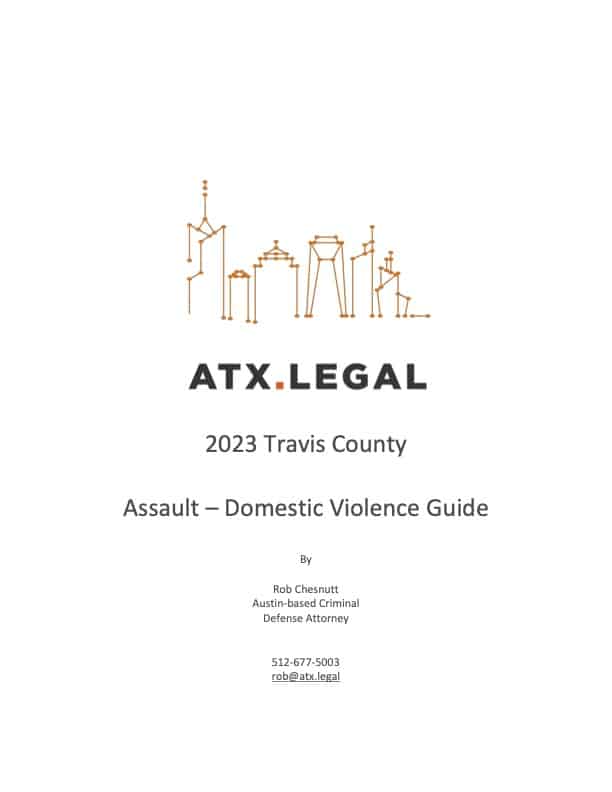How long do Domestic Violence Cases take?
But, before we get started, this post is for educational purposes only. It is not legal advice. If you would like legal advice on your specific situation, you can fill out our contact form.
Support of the Complaining Witness is Key in AFV Cases
On of the biggest factors that can affect the timeline of an AFV case is the support of the Complaining Witness (CW). The term CW in the context of family violence refers to the person who is the alleged victim. They are referred to as the CW even if they are not “pressing charges”.
If the CW is supportive of dropping charges, this can drastically affect the speed of a case. Even though the prosecutor is not required to drop charges just because the CW requests it, they will still give weight to their wishes.
There are two main reasons for this. First, they often need the CW’s support if they were to go to trial. It is difficult to secure a conviction if the person who was allegedly injured will not cooperate with the prosecution. Second, the prosecutor is there to protect the community, which is – in this case – the CW. If the community does not want the help of the prosecutor, it’s a signal that their resources can be better spent elsewhere.
So, in cases where the Complaining Witness is not supporting the prosecution, they will be more likely to offer solutions that lead to a quick dismissal. However, it’s not the only factor.
The Severity of the Facts
Two cases that have the exact same charge – let’s say misdemeanor assault – can be VERY different based on the specific facts. One case may be based only on witness statements, while another case may include video. Another case may not have video, but there is medical evidence that an assault occurred.
The worse the facts, the longer it takes
In general, cases that have worse facts for the defendant take longer to resolve. That is because the prosecutor is going to be less likely to drop a case if they can prove it easily. If there is enough independent evidence, they may even decide they can prove a case without CW support.

Plea Negotiations
Almost all misdemeanor family violence cases are heard in County Court #4. Felony cases can be heard in any of the District Courts, but there is always one prosecutor in those courts that exclusively deals with family violence cases. The amount of time it takes for plea negotiations can vary greatly. When the evidence for a charge is truly lacking, a dismissal can happen swiftly. In other cases, there is some grey area and the prosecutor will not dismiss right away. For many cases, there is no offer of dismissal, and we need to press forward toward trial. This can mean gathering additional exculpatory evidence, or simply setting on a trial docket to force the prosecutor to prove the case. Each case is going to be handled differently at this stage. I almost never accept a plea that requires a family violence finding without a compelling reason. If that is the best offer we get, the typical response is to set for trial. Assault – Family Violence cases are somewhat unique in the way plea negotiations are handled. They can require taking a hard stance with the prosecutors. Because any conviction or even a deferred adjudication will lead to a family violence finding (discussed later), and because an FV finding will be on your criminal record forever, I do not usually counsel my clients to accept an offer that includes the FV finding. In some of these cases, the prosecutor may offer the Family Violence Intervention Program (FVIP) in misdemeanor cases, or pretrial diversion if the charge is a felony. These options are generally attractive and I often encourage my clients to accept. In fact, they are important enough that I dedicate an entire section to these options in a later chapter. Check it out if you’re interested to learn more.The Family Violence Trial Docket
If there is not an offer that is worth accepting, we will usually ask for the case to go onto the trial docket. Once on the trial docket, this does not mean that your case will be going to trial at the next setting. In fact, it is very likely that we will be set with a number of older cases that will take precedence. The judge will determine which case is actually tried. An important note about the trial docket is that you can continue plea negotiations. I have often been able to secure a much better offer once the case is on the trial docket. Once the prosecutor begins digging deeper into the case for trial prep, they will often encounter holes that they didn’t know were there. Maybe a witness has recanted or is unavailable. Maybe a police officer has moved out of state. A lot can happen that will disrupt their ability to put on their case, and they might not be aware until they give the case a hard look. In that situation, we can often accept a better offer that avoids the need for trial.Difficult Choices
The downside of setting a case on a trial docket is that it will certainly delay the outcome in the case. We may need to be present at court for settings several months in a row before we actually go to trial. Attorney and defendant both need to be present when a case is set for trial. If the alternative is to accept a conviction, it is usually worth it to press forward. If an offer is made that avoids a conviction, it is usually worth considering at this stage.The Bottom Line
OK, I’ve talked a lot about the factors that can speed up or delay a case involving family violence. But what’s the bottom line – how long does it take? In a case where everything lines up – weak evidence, a supportive CW and a prosecutor who is willing to listen, a case can be disposed of within a month. I’ve even had cases dismissed within weeks, but this is exceedingly rare.
Common timelines for AFV Cases
A more common scenario involved a prosecutor asking for some up-front requirements (like classes or a period of sobriety) before being willing to dismiss. These types of cases can take 4-9 months depending on the requirements, and my client’s ability to complete them.
Another fairly common scenario is where the prosecutor is unwilling to drop the case. These cases are set on the trial docket and can take 9-15 months before they settle. If they actually end up going to trial, it’s more like 12-18 months.
So, if you’re sitting at month 5 of plea negotiations and wondering why your case is going nowhere, it can be a good idea to get an update from your attorney to see where you are in the process.
You can also get my 2023 Assault -FV Guide for Travis County. Download the free PDF guide by clicking the image.

